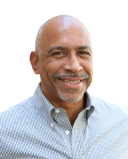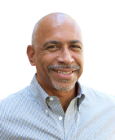Environment
Final Lessons on My Cancer Journey
A Personal Perspective: Accept your vulnerability and take nothing for granted.
Posted February 28, 2023 Reviewed by Vanessa Lancaster
My optimistic nature, combined with my confidence and good fortune, has given me a sense of power, resilience, and invulnerability that I have often taken for granted. I assume good things are in store for me. This is not because I haven’t experienced professional challenges or hardships.
The death of my first wife and my son’s ongoing mental illness have been major hardships, but neither has diminished my positive outlook or my belief in my ability to overcome obstacles, accomplish my goals, and exert some degree of control over my life. I am keenly aware of my privileges as an educated, relatively affluent man, and I know that as a Black man in America, I remain the object of biases, scrutiny, and stereotypes that individuals like me frequently experience. Yet, despite all of this, I have never felt weak, paranoid, or afraid.
My sense of invulnerability and the power that comes with it disappeared entirely during my cancer journey. Instead of feeling powerful and in control, I felt weak, at times powerless, and often vulnerable in ways that surprised me. For the first time in my adult life, I found myself extremely sensitive to people's energy. I was particularly affected by those I perceived as callous or unsympathetic about my condition.
For example, about five weeks into my treatments, when I was feeling particularly weak, I ran into a neighbor while trying to muster the strength for a short walk. She stopped to say hello, and when I told her about my cancer, she matter-of-factly shared, “People with your condition end up on feeding tubes. That’s just the way it is.” Having worked as a nurse for many years, her prediction was not mean-spirited. It was strictly a professional prediction. Nonetheless, something about her matter-of-fact tone hit me like a club. As I took in her words, I felt as though my energy was slipping away. To protect myself, the only thing I could do was to abruptly excuse myself and slowly walk away.
As I thought about my reaction, I realized that it really wasn’t what she said but rather how she made me feel that triggered my vulnerability. Over the course of my cancer journey, I learned that the emotional part of my illness was inextricably connected to the physical experience. Like many men, I had been pretty good at suppressing uncomfortable feelings: guilt, uncertainty, doubt, and shame. However, as a result of the suffering I experienced during my cancer journey, I learned to accept that vulnerability was part of the journey. Rather than suppress or hide it, I was forced to acknowledge it to myself and others.
Later, I realized that some of my friends and people I met didn’t know what to say about my illness, so they thought it was best to say nothing at all. I suppose their reaction was similar to my own impulse to keep my cancer to myself and not share the news of my condition in order to avoid being defined by my illness.
Eventually, I learned to accept and even embrace my vulnerability. I was weak. I couldn’t eat. I got cold easily, and I was affected by the energy and sentiments of others. I took this and the other lessons I acquired with me as I recovered and realized that I had been changed forever by my cancer journey.
Final thoughts
As I reflect on my cancer journey two years after my diagnosis, the sickness feels like a distant memory, but I remain keenly aware that the experience changed me in profound ways. In each of these posts, I have shared some of what I learned along the way: “why me” was the wrong question; cancer doesn’t wait for you to be ready; you have nothing to hide; there’s strength in numbers; it’s a journey, not a battle; accept the advice of experts; love yourself, even when you feel unworthy.
It’s important for me to acknowledge that it took several months for me to fully process my cancer journey and to identify the lessons I learned. I decided to write and then publish these posts because it provided me with the opportunity to reflect on what I had learned and a way to share the lessons with others.
In response to my posts, I have heard from several readers, many of whom let me know that they appreciated my candor, my willingness to be introspective and disclosing, and my honesty about the arduous nature of my journey. This is what I hoped for when I decided to publish these posts. I have appreciated the feedback. It was my hope that others would benefit from the lessons I learned on my cancer journey, even though I know that every cancer journey, like every life, is unique.
I am still on the path to recovery. I feel much better; no more headaches or difficulty eating, and I now have a new, much thinner body. My face has aged and looks gaunt, and despite the assurances from my doctor, my weight and appetite have not returned. I now weigh 167 pounds, about what I weighed in high school, and I was forced to buy a whole new wardrobe of clothing. I barely recognize myself in the mirror anymore. I still get a dry mouth at night, and I get cold more easily. If I miss a meal, my energy feels as though it dissipates quickly.
However, despite these changes, I give thanks for being alive and for what I have retained physically. I am strong and fit, and my libido and endurance have returned.
But more important than the physical changes brought on by my cancer journey, I am struck by how much I have been affected with respect to my identity as a man. I am more patient, sensitive, and present with others, especially my children and grandchildren. I am more attentive and responsive toward those who look to me for guidance and assistance, and more empathetic to the pain, suffering, and discomfort of others.
Most of all, I am more keenly aware of my mortality. I have a 10-year-old daughter, and I would like to live long enough to see her graduate from high school and college. Ideally, I would like to live at least as long as my father did – 82, but I know nothing is guaranteed.
Though I would have preferred not to have taken my cancer journey, and I hope that I won’t be forced to take another (though there is a strong possibility that I have prostate cancer), I know that I have benefited from the experience. As has been true in other difficult life experiences, I have learned things from this journey that have made me wiser and more appreciative of every aspect of life, even those I once considered mundane.
Now, I take nothing for granted. I savor the moments I share with family and friends. I relish the time I spend gardening, cooking, walking our dog, and savor the time taken for daily meditation and prayer. I resist the call to travel for work (though I am certainly willing to take vacations) because I know it drains me, and I know from my experience during the pandemic that requests for my time can be satisfied using virtual technology.
Some readers may look at the lessons I’ve learned and wonder why it took a severe illness to get me to learn things that some might consider obvious. This may be true, but these were my lessons, and I have shared them because, hopefully, some of you who feel strong and healthy now will benefit from these lessons if you, too, find yourself taking an unexpected journey into the kingdom of illness. Estimates are that one out of three adults will experience cancer at some point in their life. Hopefully, you will be better prepared than me.
With my cancer experience now in the rearview mirror, I take comfort in the words of my teacher as I contemplate what lies ahead for me:
“Adversity is necessary for change…Some changes look negative on the surface, but you will soon realize that space is being created in your life for something new to emerge.”– Eckhart Tolle




